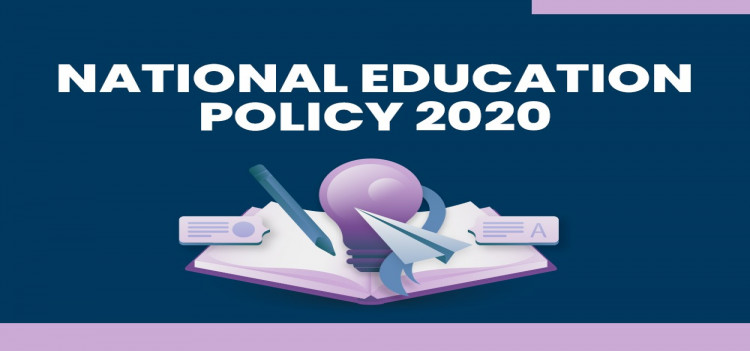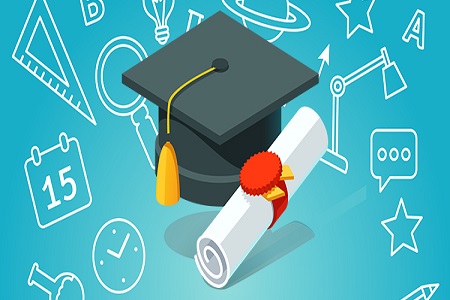The government has further stated that new initiatives will be taken under NEP 2020 in coming days. Some of the important initiatives that are in the pipeline under NEP 2020.
The government released a booklet with NEP initiatives, to know more Please Click Here
Vidyanjali
Implementation Strategies
- The National Educational Policy (NEP) 2020 introduces a transformative change across all levels of education in India.
- This includes a thorough active involvement of the community as well as the philanthropic sector in the attainment of its goals and objectives.
- The NEP, 2020, in different chapters, lays emphasis on volunteer participation from private stakeholders
- NEP 2020 aims to connect the Government and Government aided schools through a volunteer management program.
- The Department of School Education and Literacy, Ministry of Education has revamped the Vidyanjali web portal.
- The newly introduced portal – “Vidyanjali” will help the volunteers interact and connect directly with schools of their choice to share their knowledge and skills as well as contribute in the form of resources
- The school authorities will assess the suitability of the volunteer for the service/activity and/or the specifications of the assets/material/equipment in accordance with the procedure as set out in these guidelines.

Date of Implementation:
The scheme is scheduled to be launched in 2024-25
Target Group:
Government and Government aided schools and students.
Benefits of the Scheme:
- “Vidyanjali” is a volunteer management program that will benefit all government and government-aided schools and students with resources
- It will help the community/volunteers to interact and connect directly with the Government and Government aided schools of their choices and share their knowledge and skills
- The scheme will also help to contribute to assets/material/equipment to meet the requirements of the schools.
How will it be implemented?
The government aims to give wide publicity for implementing the program. The Citizens, NGOs, and other organisations will be encouraged to participate in the program leading to improvement in school infrastructure and learning levels of children.
Talking Books: To develop Inclusive Education
Resources
Implementation Strategies
- National Education Policy, 2020 has recommended a transformative scheme for the persons with Disabilities (Divyangjan).
- The National Education Policy, 2020 emphasizes on the development of inclusively designed learning materials for the education of Persons with Disabilities (Divyangjan),
- The NIOS has taken steps to develop appropriate and accessible course materials for deaf and hard of hearing learners and learners with blindness and low vision.
- For visually impaired learners: Talking books in daisy format have already been developed for 14 subjects at the senior secondary level is undertaken by NIOS
- Exemptions and concessions on examinations will be implemented to meet the needs of students with disabilities.
Benefits accrued:
- Talking books will support in enhancing vital literacy skills such as fluency, vocabulary, language acquisition, pronunciation, phonemic awareness, and comprehension
- Overall, these initiatives will help to cater to the needs of learners with disabilities and ensure equitable and universal access, providing quality holistic education and enhancing Gross Enrolment Ratio (GER).
Date of Implementation
To be launched in 2024-25
Target Group
This initiative will boost the learning of 50 lakh population with blindness and low vision.
How will it be implemented?
The contents in talking books in daisy format shall be developed in 9 subjects on priority and
more subjects will be added in subsequent stages.
SQAA- STANDARDS FOR EXCELLENCE IN SCHOOL
EDUCATION
Implementation Strategies
- The CBSE has been designated as Standards Setting Authority (SSA) for Kendriya Vidyalayas, Navodaya Vidyalayas, Private Independent Schools, and Government schools affiliated to the Board under NEP 2020
- The Board has prepared standards in different areas of school functioning like curriculum, pedagogy, assessment, infrastructure, inclusive practices, human resources, management and governance, and leadership.
- The main purpose of this quality assessment framework is to enable schools to evaluate themselves against the defined standards and embed transformational change in their way of functioning.
- The standards delineating the student profile across the different domains will act as a yardstick for evaluating the effectiveness of school practices. and providing them with support material.
Target Group
The learners will be given the standards framework that develops them to be confident, connected, actively involved, lifelong learners as envisioned by NEP 2020.
Date of implementation:
To be launched in September, 2021
Benefit:
- It will provide the schools with a common language and qualitative benchmarks around which they can charter their own self-improvement planning.
- This will enable schools to reach an expected level of excellence in all aspects of functioning
How will it be implemented?
- The Orientation programme for schools to sensitize them on the School Quality Assessment Standards Framework will be organised
- The Identification of school principals and senior teachers will be done and they will trained as mentors for supporting schools in carrying out the self-assessment process as defined in the
- School Quality Assessment Standards Framework develops an online platform for the schools to upload the report of self-assessment and provide them with support material.
Development of NCFs and SCFs
How implemented:
As per National Education Policy, 2020, the following four NCFs will be developed:
1. National Curriculum Framework for Early Childhood Care and Education (NCFECCE)
2. National Curriculum Framework for School Education (NCFSE)
3. National Curriculum Framework for Teacher Education (NCFTE) and
4. National Curriculum Framework for Adult Education (NCFAE)
- The development will be implemented through the active collaboration of states/UTs through a Tech Platform.
- A comprehensive strategy document has been prepared jointly by the Ministry of Education (MoE) and NCERT.
- It empowers all states/UTs to first prepare their State Curriculum Frameworks (SCFs) passing through the process of district-level consultations, mobile app surveys, and development of position papers by the State Focus Groups
- These draft recommendations of the SCFs will be used in development of NCFs. Autonomous organisations
- The MoE will also undertake this process to provide inputs for the NCF s and implements the same
Date of Implementation:
Web-portal will be launched by the Ministry of Education in the month of August 2021
Target group:
Students, Parents, Teachers, Teacher Educators, Community Members, Civil Society Groups, etc.
Benefits
- The four National Curriculum Frameworks, viz, NCFECCE, NCFSE, NCFTE, and NCFAE will provide broad guidelines in the area of ECCE, School Education, Teacher Education, and Adult Education for quality and equitable education.
- This will help the education system in states/UT to restructure stages of curriculum and pedagogy as proposed in NEP, 2020.
How will it be implemented?
- Templates for the Tech Platform are in progress. The questions for the Survey and Consultations are being finalized.
- The web-portal for NCF-SCF is also under development Orientation workshops will be held with the states/ UTs and other stakeholders.
National Professional Standards for Teachers (NPST)
How Implemented
- NPST is a public statement of what constitutes teacher quality that defines the work of teachers and makes explicit elements of high-quality, effective teaching
- NPST will govern the teaching profession in the country in relation to its professional role.
- The “MyNEP2020” platform was operationalized from 1st April 2021 to 10th June 2021 on pilot bases
- The scheme will be implemented for overall coherence in preparing the document on NPST for sustainable and positive change in the Teacher Education Sector
Target Group: ‘
- Primary School Teachers
- Secondary School Teachers
Benefit:
- The standards would cover expectations of the role of the teacher at different levels of expertise/stage, competencies required for that stage, performance appraisal for each stage to be carried out on a periodic basis
- The NPST will aim to facilitate teachers’ personal and professional development by providing them an understanding of what is expected in terms of their performance and what needs to be done to enhance the same.
How will it be implemented?
- The NCTE has initiated the process of documenting a draft on NPST and thereafter its nationwide implementation by August 2022.
- A Digital infrastructure-based solution/implementation plan for NPST aligned with NEP 2020 will also be developed.
Education for All and Lifelong Learning
How Implemented:
- According to the recommendations of National Education Policy- 2020 a new centrally sponsored scheme on 'Education for All' (Adult Education) – “New India Literacy Programme” has been designed.
- The scheme will have five components of 'Education for All' as recommended by NEP i.e.
- Foundational Literacy and Numeracy,
- Critical Life Skills,
- Basic Education (Equivalency),
- Vocational Skill Development and Continuing Education
- The NCERT has established nomenclature as National Centre for Literacy (NCL) that is dedicated to 'Education for All'
- The NCERT has prepared the primer for foundational literacy of adults and it has been shared with states.
Date of Implementation:
FYs 2024-25 to 2025-26.
Target Group:
To cover 5 crore, non-literate adults, in the age group of 15 years and above in both online and offline mode in the country.
Benefit:
The scheme will cover 5 components of 'Education for All' i.e.
-
Foundational
-
Literacy & Numeracy,
-
Critical Life Skills,
-
Basic Education (Equivalency),
-
Vocational Skill Development and Continuing Education
How will it be implemented?
The scheme will use IT-Based platforms and school systems to reach out to the maximum number of non-literates.
4 Year Integrated Teacher Education Programme
How implemented:
- The 4 Year ITEP, a dual-major holistic Bachelor’s degree offering B.A. B.Ed./ B. Sc. B. Ed. and B.Com. B.Ed. will be offered in a pilot mode initially in selected multidisciplinary institutions.
- It will enable a student-teacher to get a degree in Education as well as in a specialized subject such as history, mathematics, arts, economics, commerce, etc.
- ITEP will not only include the teaching of cutting-edge pedagogy but also provide a grounding in early childhood care and education (ECE), foundational literacy and numeracy (FLN), toy-based pedagogy, inclusive education, knowledge of India and its values/ ethos/art/traditions
Target group:
4-Year ITEP will be open to all students who choose teaching as a profession after senior secondary level
Benefits accrued:
- The Standardization of the courses as per the needs of the students enter the teaching profession as a matter of choice
- This integrated course will be beneficial for the students as they will save 1 year by completing this course in 4 years against the normal duration of 5 years as in the case of the existing B.Ed. programme.
How will it be implemented?
The commencement of 4-Year ITEP will be from the academic session 2022-23. By 2030, ITEP will be offered by multidisciplinary institutions and will become the minimal degree qualification for school teachers.
National Mission for Mentoring (NMM)
Implementation Strategies
- The NMM will be operationalized by NCTE by creating a large pool of outstanding senior/retired faculty who will act as potential mentors for mentees, regardless of the age or position of the mentor and mentor.
- The “MyNEP2020” platform was operationalized from 1st April 2021 to 10th June 2021 which was an exercise of digital consultation to invite suggestions/inputs/membership from different stakeholders.
Target group:
The target group is students, teachers, and teacher educators. NCTE has initiated the process of documentation a draft on NMM and thereafter its unfolding by 2022-23
Benefits accrued:
- Creation of a large pool of outstanding senior/retired faculty including
- those with the ability to teach in Indian languages, who would be willing to provide short
- and long-term mentoring/professional support to university/college teachers.
How will it be implemented?
- The expert committee will formulate the draft by going through several revisions before release of the Draft for public review.
- The Comments by the reviewers from the stakeholders will then be used to prepare a final Draft for notification.
- The document for NMM which will be prepared by NCTE will be made applicable in selected Central Institutions.
- The document will also be forwarded to the State Governments as a guideline.
- A digital platform will also be created in which mentor- mentees will identified
Entrepreneurship
Implementation Strategies:
- Entrepreneurship is all about starting, designing, launching, and managing a business enterprise.
- This course will provide learners with a basic understanding of entrepreneurship, its types, and its characteristics.
- The scheme intends to familiarise learners with various concepts like innovation, value addition, theories of motivation, the process of setting up an enterprise, and also to acquaint them with the entrepreneurial ecosystem and government support available for setting up of enterprises.
- The course contents broadly include Entrepreneurship, Creativity and Innovation, Entrepreneurial Motivation, Entrepreneurial Opportunities, MSME, an Entrepreneurial Ecosystem and Project Work.
Date of Implementation:
Ready to be implemented.
Target Group:
Secondary level learners of NIOS
Benefit:
- This course inculcates the idea of starting one’s own business early in life.
- The course gives a detailed awareness about perks given by Government of India and state governments are creating a supportive entrepreneurial ecosystem and providing incentives and infrastructural facilities through a single-window system.
- This course would acquaint learners with such incentives and enable them to make use of the facilities provided. Innovation is important to sustain and improve any business enterprise.
How will it be implemented?
- This course will be offered through various platforms like SWAYAM MOOCs to provide wider access to the learners. Besides providing Teaching Learning Materials (including pdfs, audios, videos, worksheets) on the NIOS website
- This Course would also be available for live classes on the Virtual Open School platform of NIOS with integrated advanced features such as artificial intelligence and virtual reality



